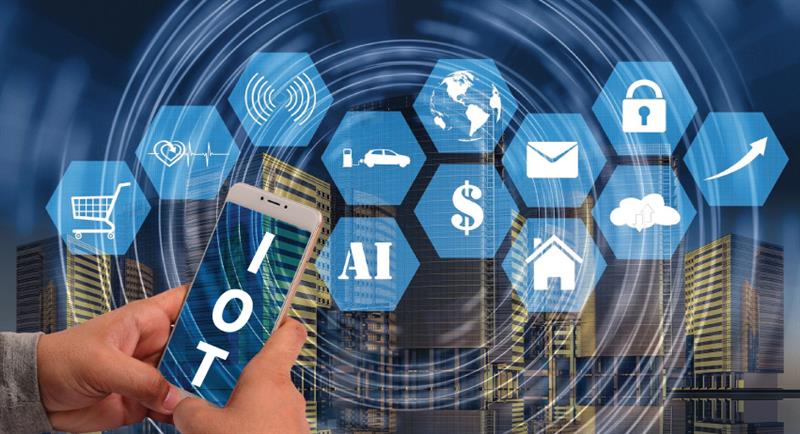
How IoT is Shaping the Future of Software Development
The way we build programs is evolving rapidly, and smart technology is driving the change. Picture a future where your smartwatches communicate with your vehicle, your refrigerator refills automatically, and production plants operate with little human effort. Seems like science fiction? But it’s already a reality.
IoT application development is transforming the tech sector, making systems more intelligent, highly productive, and seamlessly integrated. IoT development companies are leading this change, developing groundbreaking technologies that are revolutionizing various fields.
The Role of IoT in Modern Software Development
Software development has traditionally focused on web and mobile applications, but IoT application development comes with new challenges and opportunities. With billions of devices connected across the globe, software must now handle massive amounts of data, ensure real-time communication, and seamlessly integrate with diverse hardware. This shift requires developers to adopt new approaches, frameworks, and security measures.
IoT development involves creating software that incorporates and manages devices, sensors, and networks. IoT software must function in various environments, from smart homes to industrial automation, unlike conventional software. Developers now need expertise in embedded systems, cloud computing, and cybersecurity to build robust IoT solutions.
How IoT Development Companies are Spearheading Innovation
As smart technology keeps growing, companies depend on expert IoT developers to build strong and scalable solutions. IoT development companies focus on making apps that connect devices, process live data, and improve performance. They are key players in industries like healthcare, production, and logistics, where they build intelligent software to improve productivity and strategic planning.
Building IoT apps demands expertise in communication standards, information handling, and user interaction. Software creators must guarantee that platforms operate seamlessly across various gadgets while maintaining data protection and confidentiality. This shift has led to the integration of emerging innovations like decentralized processing, machine intelligence, and secure digital transactions which are being used to make IoT systems work better.
Revolutionizing Industries with IoT Application Development
One of the biggest effects of smart technology is in the medical field. IoT companies are developing advanced health tools that track a patient’s well-being instantly, allowing quick detection of illnesses and customized care. Smart fitness trackers and virtual tracking tools are changing the way patients are treated, cutting down on hospital visits, and boosting overall health improvements.
In manufacturing, IoT application development is driving Industry 4.0 by incorporating intelligent sensors into the production process. The sensors record real-time data, streamline processes, and predict equipment failure prior to its occurrence. This level of automation increases efficiency, reduces downtime, and improves product quality.
The transportation industry is also getting advantages from IoT advancements. IoT-enabled vehicles, intelligent road control systems, and instant tracking of shipping and delivery are transforming transit by boosting efficiency and making it more secure. IoT development companies are creating tools that support self-driving cars, proactive upkeep, and ientvehicle tracking.
Challenges in IoT Software Development
Despite its potential, IoT app development is not without challenges. Security is a top priority because internet-connected devices are vulnerable to cyber-attacks. Developers must integrate robust encryption, authentication, and threat detection mechanisms to protect users' information. Scalability is another challenge because IoT systems must handle increasing amounts of data and devices without compromising performance.
Interoperability is also a fundamental challenge as different devices use different communication protocols. IoT software companies must create software that enables seamless integration between devices from different manufacturers. Standardization is underway to address these compatibility issues and create a unified IoT environment.
Conclusion
As innovation advances, the progression of IoT development will persist in optimizing itself. Decentralized processing is increasingly becoming a necessity to handle information near its origin, minimize lag, and enable more intelligent instant choices. AI and automated learning are advancing connected device programs with forecasting models and autonomy.
5G connectivity is another game-changer, providing faster and more reliable communication between devices. This will accelerate the evolution of IoT applications, with new opportunities emerging in smart cities, connected health, and autonomous systems.
IoT development companies will play a critical role in leveraging these advances and developing innovative and effective solutions. Software development is being transformed, and IoT is leading the charge in this transformation.
With more connected and interacting devices, businesses must keep pace with this new digital reality. With the services of IoT development firms, the future of software development will be smarter, more automated, and more interconnected.